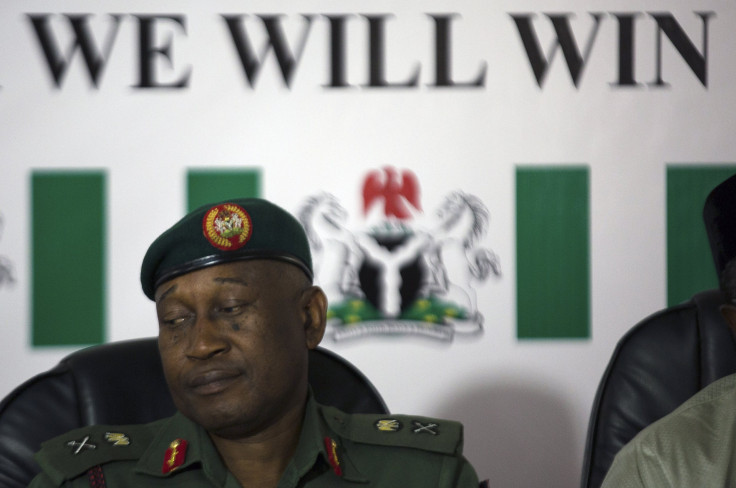Goodluck Jonathan's Administration Spent Trillions On Nigerian National Security In Past Five Years, Yet Boko Haram Remains: Report

Under the watch of former President Goodluck Jonathan, the Nigerian government allotted trillions to the federal security sector, yet the West African nation continues to face widespread crime and attacks by Boko Haram. Jonathan's administration spent a whopping 4.62 trillion naira or $23.2 billion on national security over the past five years, local newspaper Premium Times reported Friday.
The security sector has consistently claimed the largest chunk of the country’s expenses. Jonathan's administration assigned security agencies a total of 934 billion naira or $4.69 billion in the 2015 budget, and 923 billion naira or $4.64 billion in the 2014 and 2013 budgets. The security sector received 924 billion and 920 billion for the 2012 and 2011 budgets respectively, Premium Times reported. However, it remains unclear exactly how Nigerian security agencies spent these hefty sums because the country has seen little relief from terrorism, crude oil theft, kidnappings and other crimes.
Security chiefs have repeatedly claimed the allocated funds were insufficient to equip Nigerian forces, and the defense ministry has refused to make its spending public. Critics have accused Jonathan's administration of corruption and using the funds to acquire illicit wealth. Anti-corruption activists said concealing the sector’s spending makes accountability more difficult to enforce, according to Premium Times.
“The absence of disclosure, backed by law and practice effectively makes the security sector the most prone to contract inflation and ineffective service delivery,” said Seember Nyager, executive director of Public and Private Development Centre, a nongovernmental organization dedicated to improving the integrity of public and private sector processes. “The high risk and probability of contract inflation in itself fuels the [Boko Haram] insurgency because no amount of resources would ever be sufficient to contain a system with unchecked leaks.”
More than 15,000 people have died in Nigeria since Boko Haram launched its brutal Islamist insurgency in 2009, and nearly 1.5 million others have been displaced, according to the United Nations refugee agency. Nigerian President Muhammadu Buhari, who defeated Jonathan in the March national elections, has pledged to fight corruption and restore national security.
© Copyright IBTimes 2024. All rights reserved.











